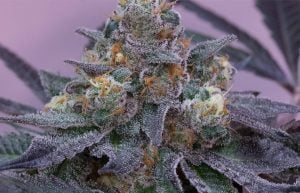
“LEGALIZATION OF CANNABIS IN SWITZERLAND: ON THE PATH OF PRAGMATISM? »»
After authorizing the sale and consumption of flowers, extracts, food, cosmetics, veterinary products and other products derived from high CBD content from 2017, Switzerland is among the pioneers to have positioned itself on this market in Europe. Only 4 years later, in 2021, the Swiss Federal Office of Public Health announced the launch of a national campaign of pilot projects concerning the consumption of cannabis for recreational use for adults. A news welcomed as a real earthquake in an old Europe still very conservative…
AN INTERNATIONAL POLICY MORE SUITED TO CURRENT REALITY
Faced with the international context gradually evolving towards the acceptance of cannabis for playful use for adults, in particular to States–United (since 2012) or Canada (since 2018), the Swiss Adopts new progressive and avant-garde measures, for the European continent, in this area. Although the law is not yet approved at the federal level on American soil, the domino effect is already initiated and federal legalization is now only a story of time, with a possible deadline in the near future. On Canadian soil, great power neighboring uncle Sam, cannabis for use medical as recreational is now accessible throughout the country.
Many countries located all over the globe are experiencing a more or less slow evolution of the same kind. Some countries in South America are also in the process of developing their medicinal sectors, as is the case with Colombia (since 2015), Uruguay (since 2013), Mexico (since 2021), Chile (since 2014) and Peru (since 2017). They will certainly be followed by other surrounding countries and will also consider opening up short -term recreational market.
At the level of European countries, it is still a little slow at start -up, but we are currently witnessing the foundations for the establishment of the sector of cannabis medical within European Union countries as the Portugal (since 2018), L‘Spain, Germany (since 2017), the France (2021), the Kingdom–United (since 2018), Italy (2020), the Lithuania, the Greece (2018) and Cyprus. Many products containing CBD are now over the counter in Switzerland (THC rate limited to 1 % maximum in flowers), Luxembourg, in Belgium, in France, in Italy, in Spain, to UK, in Norway, in Finland, to Netherlands, in Germany, in Austria, in Poland, in Lithuania, in Republic Czech, in Slovenia, in Fruit salad, in Greece and in Turkey.
In the same way, on the continent African, Africa from South legalized cannabis in the broad sense (recreational, therapeutic and CBD). Countries like the Zimbabwe and the Lesotho As for them, have chosen to authorize only medical cannabis on their soil. On the side of continent Asian, the Korea from South, the Thailand and the Sri Lanka now allow the use of Therapeutic cannabis. Despite the lack of regulation on the CBD Until then within this continent, it would seem that the Malaysia and the Thailand seriously think about the authorization of this cannabinoid for fine medical.
An evolutionary policy also makes its way in Oceania, because Australia like the New Zealand recently authorized the Therapeutic cannabis. This observation of the general state of the various international political developments on cannabis in the broad sense, allows us to observe a certain harmonization gradual and positive in the matter. It would seem that both the use for medicinal purposes, as well as for well being (CBD) or recreational use, cannabis is gradually becoming more and more popular in our society. It still suffers a very strong and often unjustified stigmatization, due to a large ignorance of the plant, as well as a harmful interpretation of many historical and economic societal factors around it.
“THE DIFFERENT PROHIBITION MODELS ARE NOT EFFECTIVE SOLUTIONS”
Although many governmental reticences still persist, the virtues of cannabis are gradually being recognized: first of all by the medical profession, but also by a large number of people who use it as an alternative medicine, in order to alleviate certain pathologies for which traditional medical treatments are still too inefficient. As it concerns theuse recreational, everything clearly shows us that festive cannabis can be compared to alcohol consumption in our society. By approaching the question objectively, it would be enough to bring and establish a Politics preventive, informative, educational and so constructive at the social level, In order to set up, then develop this new industry in a global way. It is obvious that this would imply significant changes in many aspects of our society, but rather than being a problem, everything demonstrates that a policy in this sense would be more resolute Ultimately.
Today, the observation is final: the Last 50 years us have shown that the different models of prohibition, just like the Status Quo, are not effective solutions. They promote the market black, the underground economy, the increase of the crime and the lack of control sanitary On products and they alter the public health of users. The assessment is therefore generally negative …
AN OBJECTIVE AND MORE PRACTICAL HELVET VISION
It is therefore for all of these reasons, that theFederal Office for Swiss Public Health recently said that after a survey participatory subject to Swiss population re The consumption of cannabis for recreational use for adults, 70 % of respondents support future trials of controlled cannabis distribution pilots for recreational purposes. It may seem surprising and yet it is a reality. This survey was carried out from the end of January to early April 2021, with 3 166 adults and residents in Switzerland. The initial objective of this survey was to assess Acceptance of the population at cannabis distribution pilot trials as well as the measures expected by the latter in the case of a hypothetical global legalization.
Their reasons are laudable and similar to those mentioned above, namely: the limitation of the black market, the decrease in global crime, the implementation of product quality control, training, education, prevention of conduct to Risks. During this participatory survey, L’OFSP says that a major consideration will be brought about the strict protection of minors, the prohibition of advertising as well as the high taxation of cannabis products, in order to guarantee a good evolution of the health aspect in the event of legalization.
“THE IDEA IS TO FIND AN INTERMEDIARY SOLUTION BETWEEN THE PROHIBITION AND TOTAL LEGALIZATION. »
I think it is relevant to mention here that the authorities and the Swiss population show pragmatism, by changing their societal model with a certain realism. As perfectly says Adrian Gschwend, Head of the Political Bases section and execution of the OFSP: “The central idea is to find an intermediate solution between prohibition and total legalization. The Confederation spends 120 million francs per year to enforce this ban, without however being able to have the consumption of cannabis arrested, continued Mr. Gschwend. This prohibition has opened the door to a “dangerous” black market, which generates each year in Switzerland
582 million francs in turnover, he said, citing a still unpublished study from the University of Geneva ”. The Swiss authorities wish above all to check in the most realistic way possible, what would be the impact of certain stages of legalization and regulation concerning the health, the security, but also thesocio-economic aspect and economic of this life -size experiment. On Swiss territory, cannabis is classified as a Amazing prohibited since 1951, with a formal ban on culture, production and marketing. Since 1975, consumption is also objectionable.
These pilot trials should start in 2022 and the first intermediate results will be returned to 2024, as Adrian Gschwend mentions. Will be able to participate in these pilot projects only adults who are already consumering cannabis, up to 5,000 maximum residents of the same canton. These tests can be carried out by very varied entities, such as municipalities, cities or universities, for a maximum period of 5 years. They cover all aspects of the sector, ranging from culture to consumption, including production and conditioning.
The OFSP requires that distributed products cannot exceed A THC concentration greater than 20 % and must also respect the cultivation of organic farming. At the same time, the FOPH requests that an annual activity report be produced by the participants, in order to be able to inform the public as well as the government in place. These pilot projects are authorized thanks to an experimental article that was inserted last fall by the Swiss Parliament in the law on narcotics. The related ordinance has been in force since March. We hope that this experimental project will go as well as possible overall and that it will allow Switzerland and its inhabitants to evolve favorably on their global policies on cannabis. On the other hand, we hope with all my heart that the company Phytocann, who uses exclusively biological production methods, will succeed in actively participating in the heart of this test phase, thanks to its experience and its “Premium” know-how that we can already observe throughout its current product range. We wish him a most promising future.




